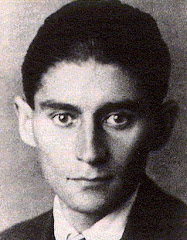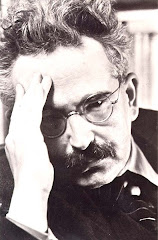After the Destruction of the Temple, God was depressed. He refused to get out of bed and rule the world. His angels, who loved him dearly, tried to cheer him up by praising him, but God would not listen. They tried to pull him out of bed, but even when they succeeded, God simply stared out into space, his face as dull as the void out of which he had once formed the universe. As God refused to preside over his universe, the papers on his desk began to pile up, petitions from the righteous for spiritual guidance, pleas from women to open up their wombs, reports on the latest blasphemies being uttered and evil acts being invented. And the lineup of souls in front of the heavenly gates began to get so long, that those at the end of the line were closer to earth than the celestial abode to which they sought admittance. The gates had been closed ever since God’s fit of depression, for the angels reasoned that if the believers were to see their God in such condition, they would rather God and heaven not exist at all. For more central to their faith in God than the positive beliefs that he is all powerful, all good and all knowing, is the simple and low-standard assumption that he is not all sorrowful. Thus, even though God regretted having caused the flood and destroying his world, he was nonetheless pleased by the fragrant odors of Noah’s sacrifice. Now, however, there was nothing pleasing to God, not even his tears.
As the lines outside of heaven grew, people began to wonder what was going on inside, but the righteous ones had patience, saying that God was omnipresent and that one’s reward was in God, not heaven and that the line to heaven is a sweeter reward than heaven itself. But a young child, who had been listening to all of the theological disputes and speculations, a child who had died of starvation on the day that would have been his Bar Mitzvah, did not understand what his elders were saying, since he was not well versed in the Scriptures to which they made reference. And so he ran off to make his own investigation of the matter, dashing straight off to the gates themselves. (He had been so far back in the line that he hadn’t even been able to see the gates). As he cut the long line, nobody noticed him, or if they did, they simply mistook him for an angel, so small and fragile and pure did he seem. When he arrived at heaven’s gates, two cherubim stood outside, guarding them with flaming swords. But the child was so emaciated that he slipped through the bars in the gates and they did not detect anything. Inside of heaven, the boy looked around, but he could observe nothing, only a long dirt road along which abandoned houses stood. There was no evidence that he was in heaven, for he saw no angels, no God, no commotion, no evidence of life. But he followed the one road to see where it would lead him. No sooner had he taken his first step on the road than he found himself at the road’s end, walking up a gold and purple carpet to the chambers of the Holy One. Running into the chambers now, the child made his way towards God’s private room on whose door it was engraved, “The Dwelling Place of the Lord: Do Not Enter.” The child burst through the doors without knocking, and as he entered, saw only God’s back. God was facing the other direction, staring towards his desk, out of the window and neither saw nor heard the child, so consumed in himself was he. The child unhesitatingly jumped onto the bed and threw his arms around the back of God’s neck, as a child who shows gratitude to his father for setting the stars in the sky and the grains of sand in the desert, with the kind of unsullied pride that children often have in their parents. The child’s weight on the back of God’s shoulders brought back memories for God, which brought back thoughts, which brought back joy. And in that moment the gates of heaven swung open and God turned around to face the source of his return to Godliness. Because the child was already dead, the light of God’s visage did not cause the child to die. Though, in a sense it did. For in the moment that God’s stare penetrated and illumined the boy’s being, the boy was brought back to life and returned to this world. The boy found himself on the bima reading from the Torah scroll for his Bar Mitzvah, in full health, chanting from his Torah portion. But the words that he chanted were unfamiliar to his congregation. It was as if he was chanting every word of the Torah in one. For from his rich lungs issued forth the unpronounceable name. But at this point the storyteller could record no more.
Thursday, June 26, 2008
Subscribe to:
Post Comments (Atom)






No comments:
Post a Comment